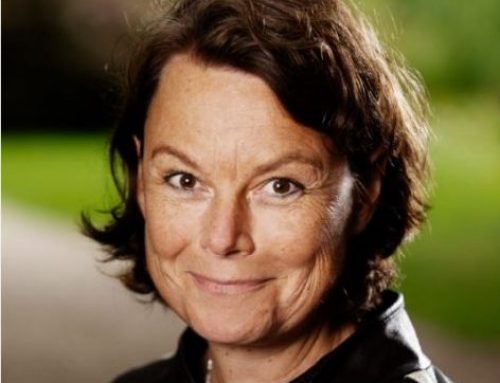Developments in the EU concerning consumers and debt
Kosta Skliris is policy advisor of the NVVK, the Dutch Association for Debt Settlement and Social Banking. In this interview mr. Skliris draws a picture of the way the EU relates to consumers, and the importance of the EU for debt relief workers and for guardianship.
ZELF: How do the European Union and consumer-debts issues relate?
“The first and foremost responsibility of the European Union is to regulate the financial market. What they have traditionally done is to create a space within which free trade in financial services can take place unimpaired. That means, a market that preferably regulates itself without anyone meddling in it or limiting the scope of activities that financial institutions have.
This is how the European Union was created. It was supposed to be a free trade-zone. But in the last few years we’ve seen two developments in the relationship between financial markets and personal debt. For one: financial institutions increasingly function cross-border and have become more diverse as to the services they offer. We even see internationalized debt-collection agencies like Vesting and Hoist. These companies offer a wide range of financial services. They are the same companies that have been buying non-performing loans (NPL’s), loans where the debtor didn’t pay, on quite a large scale. Because of such developments and the fall-out from the financial crisis the responsibility of the European Union is growing.“
ZELF: Are these internationalized companies subject to European rules?
Or only national rules?
“That depends. The European rules generally regulate the wider market. More specific laws are issued by national authorities. The European Union often issues so-called ‘directives’. These have to be translated into national law, taking into account the national flavors.”
ZELF: What is the consequence of this development for consumers?
“The classic debt-collection company we had in the Netherlands were smaller companies that were active in a specific town or region. That sort of company is increasingly coming under pressure, because there are more and more larger financial parties that are active in this market. This has a negative side and a positive. Positive because this companies have no interest in the person with a debt other than the financial aspect. They are more interested in ‘quick and dirty’ settlements with debt-relief organizations like the members of NVVK.
The flipside of the coin is: a lot of our members complain that it’s difficult for their employees to find out to whom they should talk to. Who is the actual legal owner of the debt? Who is responsible? We see that debts are bought and sometimes resold, sometimes separated into parts.
And this is only the practical point of view. The moral perspective is: if you have a non-performing loan (NPL), without anything manifest like a house or a car attached to it- a so called unsecured loan-, is it morally acceptable that these debts are traded in an international environment? Keep in mind that the original creditor has long since written-off the original debt from his balance-sheet.”
ZELF: Does the European Union act upon this subject?
“To some extent, yes. The EU has a keen interest in consumer-protection. The EU considers individuals not so much as debtors but more as consumers with a free will and decision-making ability. Until now, the EU has mostly focused on creating circumstances in which consumers can take responsible decisions.
For example, there was a consultation lately by the EU upon a new consumer credit directive (CCD). The Consumer Credit Directive aims to protect consumers in Europe better and creates a more transparent European consumer credit market. The directive provides law and structure to what kind of information a consumer should receive before they take on a loan, during the period they have a loan, and what sort of information is to be provided. This is the sort of activity the EU traditionally has been busy with.”
ZELF: I hear you suggest this is changing?
“A slow change is taking place. There is increasing awareness that the financial markets do not work perfectly, that there are areas that don’t function properly. That creates problems. A lot of banks in the EU have big portfolio’s of non-performing loans (NPL’s). In fact, they are so big that it makes the financial position of these banks unstable. This has had consequences for consumers. How on earth has it been possible that they lend out so much money that they can’t get it back?
This all happened within the existing framework of the financial market. The question you have to ask is: isn’t it necessary that the EU takes measures to reduce the amount of risky personal credit given by financial institutions? The NVVK is a member of the European Consumer Debt Network that addresses these sort of questions. We aim to create awareness in the European Commission. Awareness that personal debts exists, that it is a consequence of the way the financial markets work, and that the European Commission has to act upon it. Preferably by creating more regulations for banks and financial institutions. Not because we want to tease financial institutions but because we feel a healthier credit market is in everybody’s interest”.
ZELF: What does the ECDN want?
“In some countries you have strong systems of debt relief, in other countries you have almost none. The EU should recognize that it is necessary to have debt relief agencies in every member-country. They have a role to play to soften the consequences of market default. These agencies should have a minimal quality standard. I would like the European Commission to join the ECDN’s effort and create a set of ethic rules that we all share. As we speak we are working towards that goal.”
ZELF: What is the importance of the EU for people who are active in guardianship?
“The EU does not yet have a profound task in the social domain. The social pillar is developing but social policy is still very much a national responsibility. Concerning guardianship, the fact is that the European Union does not release any specific rules or regulations on how to execute your job as a guardian. As far as I know, there are some international standards on guardianship, but I believe they come from the United Nations and they mainly have to do with human right issues.”
How do you judge the existence of the International Guardianship Network, the members whereof receive a copy of this issue of Zelf?
“It would be interesting to see how we can cooperate so we can share knowledge on issues that have to do with consumers and debts or other financial problems. We could investigate how we can translate that to a European level. I expect the network can augment the information we have and increase our knowledge. The ECDN could also provide a platform for guardianship organizations to represent their interests in the European Union.
Interview with Kosta Skliris by Auke Schouwstra
Since 2011 Kosta Skliris is senior policy advisor at the NVVK, Dutch Association for Debt Settlement and Social Banking. He stimulates modern regulations for NVVK members, formulates strategic advice for the Board of the NVVK and participates in lobby-activities of the Association. He’s also setting up innovative projects, maintaining a clear picture of (changes in) Dutch and European laws. Finally, he’s aiding in the developments of the NVVK’s social banking activities. Kosta Skliris is also Board Member of the European Consumer Debt Network. Tasks & activities: Brussels lobby with NGO’s and the European Commission, strengthening network and effectiveness of European debt relief organizations.




